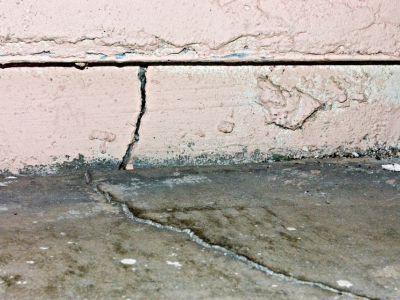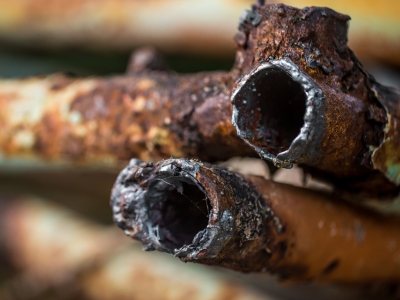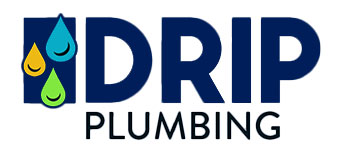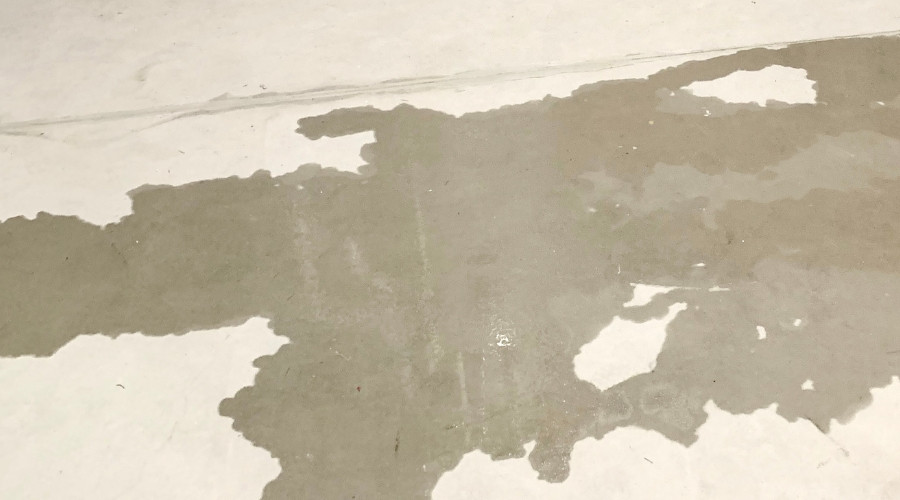Slab Leak Basics Explained
The idea of slab leaks can be daunting, as hidden water beneath a concrete foundation can undermine the structure and finishes before obvious symptoms appear. Early recognition and prompt action reduce disruption, control costs, and protect long-term value. This guide explains what slab leaks are, common warning signs, and typical causes—plus how related systems, such as a water heater, can be affected.
What Are Slab Leaks?
A slab leak occurs when plumbing lines buried under a concrete slab develop cracks, pinholes, or failed joints. Pressurized water then seeps into the surrounding soil, softening the base that supports the structure and traveling upward through concrete pores into flooring and walls. Over time, this moisture can lead to uneven settling, cracking, and interior water damage.
Because many homes run both hot and cold water lines under the slab, symptoms can vary. Hot-water leaks often create localized warm spots on hard floors and may cause a water heater to cycle more frequently. In some cases, extended runtimes can stress components in a gas water heater or an electric water heater as the system tries to keep up with continuous demand. After a power outage, certain signs may diminish temporarily as equipment resets, only to return once systems resume normal operation. Persistent dampness around mechanical areas also deserves attention, particularly if any unusual odor suggests a gas leak near a gas water heater.
Hidden leaks are not always obvious at first. By the time staining, warping, or a musty smell becomes noticeable, water may have been present for weeks. That delay is why early awareness and professional evaluation are important when symptoms first arise.
Signs of a Slab Leak
 Detecting indicators early helps limit damage and the scope of repairs. Common signs of slab leaks include:
Detecting indicators early helps limit damage and the scope of repairs. Common signs of slab leaks include:
- Damp or discolored areas on floors that don’t fully dry
- A persistent earthy or musty odor, especially in lower levels
- New cracks in floors, walls, or the foundation
- Warm spots on the floor
- Flooring damage, such as cupped hardwood, loose tiles, or rippled carpet
Utility clues can also point to trouble. A steady rise in water usage without a clear explanation often signals an unseen leak. Water heating demands may also increase if a hot-water line is affected, causing a water heater to run longer than usual and cost more to operate. In some households, the first sign is continuous meter movement when all fixtures are off.
Common Causes of a Slab Leak
 Multiple factors can lead to slab leaks:
Multiple factors can lead to slab leaks:
- Pipe corrosion: Metals can degrade over time, especially where water chemistry or soil conditions are aggressive. Pinhole leaks often begin small and expand gradually.
- Ground movement: Expansive soils, seasonal moisture changes, and settlement can stress rigid lines under the slab, causing cracks or joint separation.
- Excessive pressure and temperature cycling: Repeated expansion and contraction, as well as high pressure, can fatigue pipe walls and fittings. Thermal changes from water heating over many years add to the strain on hot-water lines.
- Installation issues: Inadequate support, sharp bends, or abrasive contact points can produce wear that eventually leads to leaks.
- Intrusive roots and surrounding materials: Tree roots seeking moisture, along with chemical interactions between concrete and metals, may accelerate deterioration.
Because the source and severity vary, repair strategies differ case by case. Some situations are resolved with a targeted access point and localized pipe repair. Others are better suited to rerouting sections of the line to bypass stressed areas. Accurate detection helps avoid unnecessary demolition and guides the most practical path forward.
Acting promptly when signs emerge limits long-term issues such as mold, persistent odors, or structural concerns. With proper diagnosis, focused repairs, and attention to nearby equipment, properties can return to stable operation quickly and with fewer surprises.
About DRIP Plumbing
DRIP Plumbing is the go-to plumbing company in Denton, offering on-time service from knowledgeable technicians utilizing the latest technology. Call them today for slab leak repair in Denton, TX.
Distribution Links +
- https://go.chinesewire.com
- https://smb.panews.com
- https://smb.andalusiastarnews.com
- https://smb.alexcityoutlook.com
- https://smb.austindailyherald.com
- https://smb.americanpress.com
- https://smb.dailyleader.com
- https://smb.vicksburgpost.com
- https://smb.bluegrasslive.com
- https://smb.claiborneprogress.net
- https://smb.elizabethton.com
- https://smb.troymessenger.com
- https://smb.clemmonscourier.net
- https://smb.gatescountyindex.com
- https://smb.state-journal.com
- https://smb.theinteriorjournal.com
- https://smb.thetidewaternews.com
- https://smb.tryondailybulletin.com
- https://smb.winchestersun.com
- https://smb.farmvilleherald.com
- https://smb.smithfieldtimes.com
- https://smb.thewashingtondailynews.com
- https://smb.middlesboronews.com
- https://smb.roanoke-chowannewsherald.com
- https://smb.tallasseetribune.com
- https://smb.thepostsearchlight.com
- https://smb.valleytimes-news.com
- https://smb.lowndessignal.com
- https://pr.washingtoncitypaper.com
- https://smb.prentissheadlight.com
- https://pr.walnutcreekmagazine.com
- https://pr.thembnews.com
- https://pr.timesofsandiego.com
- https://pr.hollistontownnews.com
- https://pr.hopedaletownnews.com
- https://pr.naticktownnews.com
- https://pr.norfolkwrenthamnews.com
- https://pr.davisjournal.com
- https://pr.mysugarhousejournal.com
- https://pr.murrayjournal.com
- https://pr.westjordanjournal.com
- https://pr.southjordanjournal.com
- htv10.tv
- central.newschannelnebraska.com
- metro.newschannelnebraska.com
- southeast.newschannelnebraska.com
- northeast.newschannelnebraska.com
- plattevalley.newschannelnebraska.com
- panhandle.newschannelnebraska.com
- rivercountry.newschannelnebraska.com


